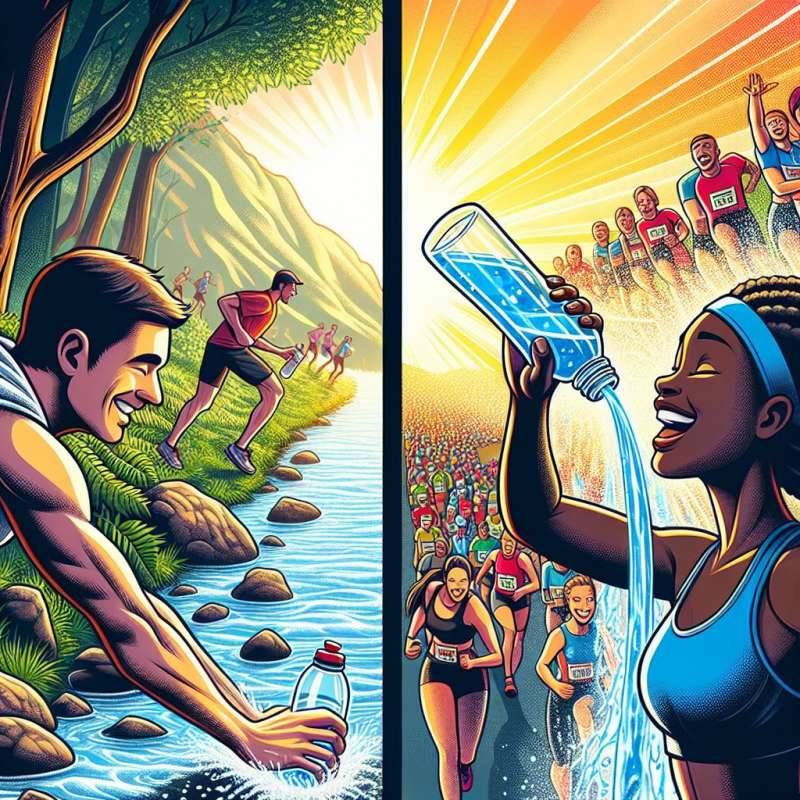
Hydration's Impact on Performance
Adequate hydration is crucial for peak athletic performance. Dehydration of as little as 2% body weight can impair physical abilities, cognitive function, and thermoregulation during exercise.
Electrolytes Role in Hydration
Electrolytes, such as sodium and potassium, are essential for fluid balance and nerve function. During exercise, they are lost through sweat and must be replenished to maintain hydration and prevent cramping.
Water vs. Sports Drinks
Water is sufficient for short-duration activities. However, for prolonged exercise exceeding one hour, sports drinks with carbohydrates and electrolytes can help maintain energy levels and improve absorption of water.
Hydration Strategies for Athletes
Effective hydration strategies include drinking fluids before, during, and after exercise. Pre-hydrating with 500-600mL of water 2-3 hours before exercise can prepare the body for intense activity.
Individual Hydration Needs
Hydration needs are individual and vary based on factors such as body size, exercise intensity, climate, and sweat rate. Athletes should tailor their hydration strategies to their personal needs.
Measuring Hydration Status
Urine color can indicate hydration status; pale yellow suggests proper hydration. Additionally, weighing oneself before and after exercise can help estimate fluid losses and guide rehydration efforts.
Hydration Myths Busted
Contrary to common myths, dehydration does not always trigger thirst, and overhydration can lead to hyponatremia, a potentially fatal condition. Balance and understanding individual needs are key.Cactus Water for Hydration
Some athletes drink water from cacti to stay hydrated in extreme conditions, leveraging the plant's natural moisture retention capabilities.
How much dehydration impairs performance?
1% body weight loss
2% body weight loss
5% body weight loss
Company